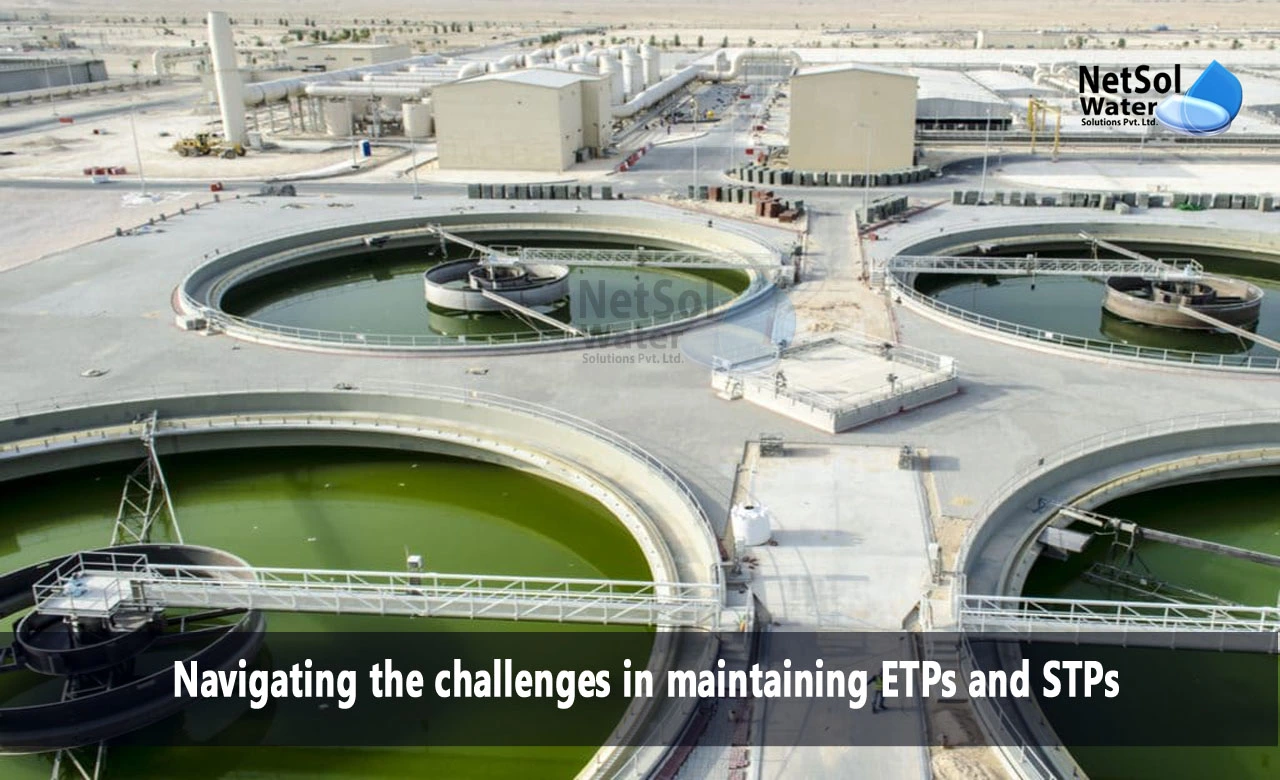What are the key challenges in maintaining ETPs and STPs?
Effluent Treatment Plants (ETPs) and Sewage Treatment Plants (STPs) play a vital function in safeguarding public fitness, the surroundings, and sustainable development. However, the hit operation and renovation of those critical facilities come with their very own demanding situations. In this blog, we can discover some of the critical things demanding problems confronted in retaining ETPs and STPs and talk about potential answers to deal with them.
1. Aging Infrastructure
One of the number one challenges in retaining ETPs and STPs is coping with getting old infrastructure. Many remedy plants have been constructed several, many years ago and require massive enhancements and upkeep. The deterioration of pipes, pumps, and equipment can lead to operational inefficiencies and extended upkeep charges.
Solution: Regular inspections, proactive upkeep, and scheduled upgrades can enlarge the lifespan of those centres and ensure they retain to characteristics correctly.
2. Adequate Funding
Maintaining ETPs and STPs requires a consistent and reasonable enough budget for operational charges, maintenance, and improvements. Unfortunately, many treatment plant lives suffer from underfunding, which could compromise their performance and the fine of treated effluent.
Solution: Securing stable funding through government presence, user fees, or public-personal partnerships can ensure that ETPs and STPs have the essential monetary assets for maintenance and enhancements.
3. Skilled Workforce
Skilled operators and preservation personnel are essential for effectively operating remedy plants. Finding and retaining a qualified workforce can be a mission, specifically in far-flung or underserved regions.
Solution: Offering aggressive salaries, providing training and certification programs, and collaborating with instructional establishments can assist in enticing and preserving skilled people.
4. Compliance with Regulations
ETPs and STPs must adhere to a complicated internet of environmental and safety policies. Meeting those necessities can be a big assignment, as policies can trade through the years and may range with the aid of location.
Solution: Regular tracking and reporting, staying up to date with changing policies, and taking part with regulatory government can help ensure compliance.
5. Energy Consumption
ETPs and STPs devour a considerable amount of strength for various processes, which include aeration, pumping, and disinfection. Rising energy charges and environmental concerns make green electricity use a problem.
Solution: Implementing electricity-efficient technologies and practices, optimizing operations and using renewable electricity assets can lessen electricity intake and operational costs.
6. Public Perception
The public's belief in ETPs and STPs can, once in a while, be poor due to worries aboutodours, noise, and capacity fitness dangers. Addressing those concerns is crucial for preserving community assistance.
Solution: Engaging with the network, addressing worries, and imposing smell management measures can improve public belief and construct trust.
7. Climate Change and Extreme Weather
Climate change can result in more common and severe weather events, which might also disrupt the operation of ETPs and STPs. Flooding, droughts, and intense temperatures can affect the treatment approaches and infrastructure.
Solution: Developing climate resilience strategies, which include flood defences, backup energy structures, and emergency response plans, can assist the treatment to resist the effects of climate exchange.
Conclusion
Effluent Treatment Plants (ETPs) and Sewage Treatment Plants (STPs) are critical for defensive public fitness and the environment. Maintaining those centers is essential to ensure their continued effectiveness. By addressing challenges related to growing old infrastructure, funding, staff, regulations, electricity consumption, public notion, and weather change, we will overcome obstacles and make sure that ETPs and STPs fulfil their crucial function in our groups and ecosystems. Collaboration among governments, groups, and industry stakeholders is key to finding sustainable answers to those demanding situations.
Netsol Water is Greater Noida-based leading water & wastewater treatment plant manufacturer. We are industry's most demanding company based on client review and work quality. We are known as best commercial RO plant manufacturers, industrial RO plant manufacturer, sewage treatment plant manufacturer, Water Softener Plant Manufacturers and effluent treatment plant manufacturers. Apart from this 24x7 customer support is our USP. Call on +91-9650608473, or write us at enquiry@netsolwater.com for any support, inquiry or product-purchase related query.



